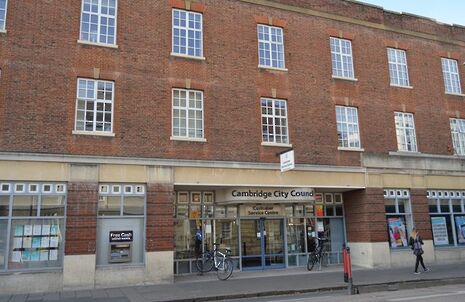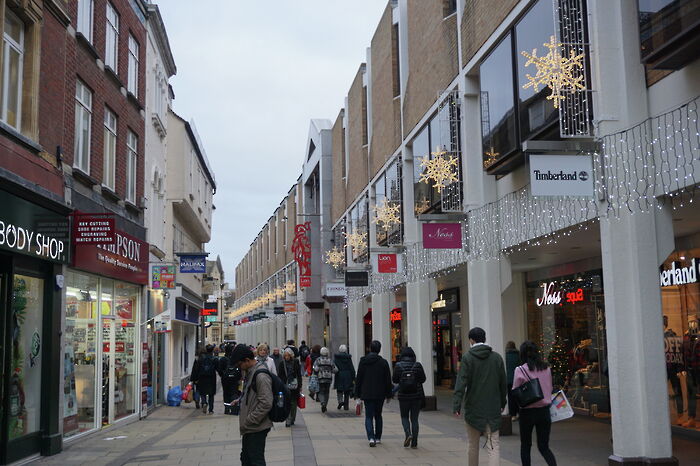Don’t pretend local politics is isolated from national austerity
In response to columnist Angus Groom, Lara Parizotto argues that local councils have consistently been a site of resistance to the national austerity agenda

Local elections are about austerity. Local elections are about difficult and creative decisions made by brave councillors in adversity. Local politics can be a reaction to and rejection of national politics.
Despite councils facing up to 40% cuts from central government, innovative and caring councils have made great strides all over the country. Your vote today is between a local council endorsing central government austerity policies, accepting irresponsible, ideologically based cuts leading to financial ruin or one courageous enough to stand up against this same ideology to make sure the poorest do not suffer.
When #GenerationRent faces low pay, insecure employment and unstable housing, a step in the right direction taken by councils has an enormous impact on the lives of many
Some of the most deprived areas of the country have been hit the hardest under dangerous austerity policies and Cambridge is no exception. However, that local authority spending power is not solely dependent on central government grants has allowed local councils to be a site of rejection for national political agendas. Council revenue comes also from locally retained business rates, and council taxes. If this was not the case, it would be difficult to imagine councils running any service whatsoever considering the slashes to local budgets in recent years.
That the current situation is dire is undoubtable. Contrary to the arguments of some, the decisions made by councils under these massive cuts are nevertheless political and reactionary to the national austerity agenda. Labour councils like Southwark, for example, have made sure the Living Wage is paid to all workers in the area, thus guaranteeing that local workers truly ‘make work pay’. Significantly, as of 2019, Cambridge will be receiving no more core government grant; imagine the impact that this could likely have on the many services Cambridge students rely on such as bike paths, public transport and public spaces.
Nevertheless, in Labour councils the most vulnerable have tended to remain better protected with continued investment in communities and the local economy. For example, while some councils demonise the homeless and threaten them with fines, Cambridge city council has reduced rough sleeping and plans to continue doing so by investing its money to support those who need services the most. These are the signs of a caring council, one that puts the values of solidarity at the centre of what it does, despite the pressures from an austerity-bent central government. The continued success of Labour councils show that politicians at the local level don’t have to passively accept national cuts determined by a Conservative government.
It is true that councils cannot decide how much they get. But they do have lobbying power and and a say on what to do with that money, for example what type of homes will be built or who these will be provided for. Southwark, a council in London, saw councillors, voting against approving proposals for redevelopments of which only 3% were social housing, meaning that out of 979 flats, only 33 would be at social rent equivalent. Again, these are political decisions which are embedded in national politics; standing up for values that guarantee people access to affordable housing, maintaining a community for all and not just the very rich, these are rejections of government policy.
Local politics is not isolated for national party politics or policy. You might not initially see issues such as the Labour-run Newnham councils' decision to directly fine rogue landlords, the first council in the country to do so, as a direct part of austerity Britain. However, when #GenerationRent faces low pay, insecure employment and unstable housing, a step in the right direction taken by councils has an enormous impact on the lives of many.
Council elections are about austerity. Council elections are about the issues you face in your local community, but these issues are shaped by national political agendas and thus your vote in council elections today can also be a rejection of or supportive reaction to such party political agendas. Ranging from services such as bin collection to roads and parking, your local council is affected by austerity cuts.
Those who have a vote in Cambridge today do not have to accept this. We have a chance to vote for a council that will invest at least an additional £200,000 in anti-poverty projects, support the Cambridge Living Wage campaign at the University and colleges and stand up against Conservative austerity; thus protecting vital infrastructure from cuts. Voters do have a chance to endorse or reject such policies and decide on which sort of services they would like their communities to benefit from and students can have a massive say in that matter.
Lara Parizotto is the women’s officer at Cambridge Universities Labour Club
 News / Cambridge academics stand out in King’s 2026 Honours List2 January 2026
News / Cambridge academics stand out in King’s 2026 Honours List2 January 2026 Interviews / You don’t need to peak at Cambridge, says Robin Harding31 December 2025
Interviews / You don’t need to peak at Cambridge, says Robin Harding31 December 2025 Comment / What happened to men at Cambridge?31 December 2025
Comment / What happened to men at Cambridge?31 December 2025 News / Varsity’s biggest stories of 202531 December 2025
News / Varsity’s biggest stories of 202531 December 2025 Features / “It’s a momentary expression of rage”: reforming democracy from Cambridge4 January 2026
Features / “It’s a momentary expression of rage”: reforming democracy from Cambridge4 January 2026










